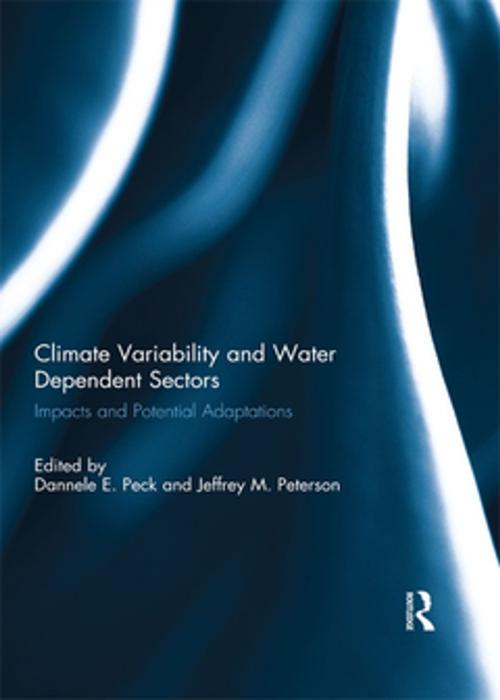Climate Variability and Water Dependent Sectors
Impacts and Potential Adaptations
Nonfiction, Social & Cultural Studies, Social Science, Human Geography| Author: | ISBN: | 9781317614265 | |
| Publisher: | Taylor and Francis | Publication: | February 22, 2016 |
| Imprint: | Routledge | Language: | English |
| Author: | |
| ISBN: | 9781317614265 |
| Publisher: | Taylor and Francis |
| Publication: | February 22, 2016 |
| Imprint: | Routledge |
| Language: | English |
Demand for water in agricultural, municipal, industrial, and environmental uses is growing. More frequent and severe extreme weather conditions now exacerbate water shortages in many locations and existing infrastructure to store and release water rarely has the capacity to both prevent floods during wet periods and meet demand during drought periods. Competition among sectors adds pressure not only on water infrastructure, but also on management policies and allocation institutions.
This book of contributed chapters assesses the performance of existing infrastructure, institutions and policies under different climate variability scenarios. It also provides suggestions for minimizing conflict over scarce water resources. More flexible water-allocation institutions and management policies, and better tools for decision-making under uncertainty will be required to maximize society’s net benefit from less reliable water resources. The chapters show how incentives for individuals to conserve water, and policies for helping vulnerable populations prepare for and recover from extreme events, will also need to be improved.
This book was originally published as a special issue of the Journal of Natural Resources Policy Research.
Demand for water in agricultural, municipal, industrial, and environmental uses is growing. More frequent and severe extreme weather conditions now exacerbate water shortages in many locations and existing infrastructure to store and release water rarely has the capacity to both prevent floods during wet periods and meet demand during drought periods. Competition among sectors adds pressure not only on water infrastructure, but also on management policies and allocation institutions.
This book of contributed chapters assesses the performance of existing infrastructure, institutions and policies under different climate variability scenarios. It also provides suggestions for minimizing conflict over scarce water resources. More flexible water-allocation institutions and management policies, and better tools for decision-making under uncertainty will be required to maximize society’s net benefit from less reliable water resources. The chapters show how incentives for individuals to conserve water, and policies for helping vulnerable populations prepare for and recover from extreme events, will also need to be improved.
This book was originally published as a special issue of the Journal of Natural Resources Policy Research.















